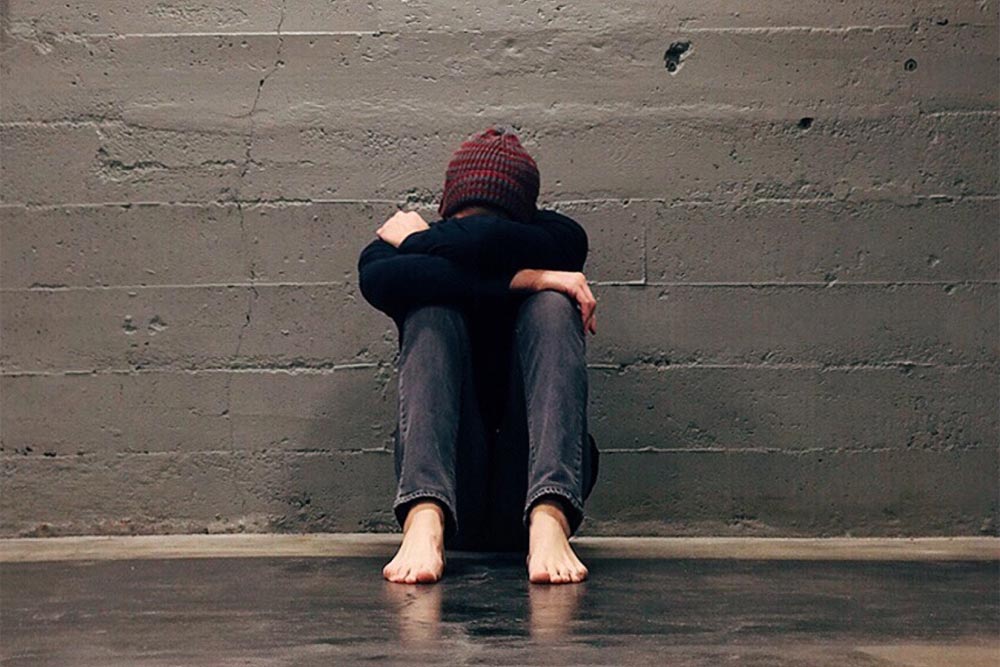Who is Best Suited for Residential Addiction Treatment?
 Today, an estimated 16,000 rehab centers deliver addiction treatment services to millions of Americans. On average, some 4 million of us go to rehabilitation every year. However, with dozens of choices in treatment type and style, it can be difficult to decide what’s right for you. Here, one of the biggest first choices is whether you’re attending inpatient or residential addiction treatment or outpatient treatment.
Today, an estimated 16,000 rehab centers deliver addiction treatment services to millions of Americans. On average, some 4 million of us go to rehabilitation every year. However, with dozens of choices in treatment type and style, it can be difficult to decide what’s right for you. Here, one of the biggest first choices is whether you’re attending inpatient or residential addiction treatment or outpatient treatment.
Both treatment options have pros and cons. And, residential treatment is definitely the best fit for some people and outpatient treatment for others. Therefore, making that decision will mean reviewing your needs and possibly talking to a consultant to help you decide what’s right for you. However, this article will help you get started with an overview of who’s best suited for residential addiction treatment.
Those with a History of Relapse
If you’ve tried to quit before and ended up relapsing, you likely go into rehab with a mindset that it isn’t going to work and you’re just going to fail. That can mean that you don’t even try – not even to get clean and sober to begin with. Going to a residential treatment facility means you’re forced into being clean and sober because you have no access to drugs and alcohol over the duration of the program. That duration can be 28, 30, 90 days or even longer. This means you’ll have plenty of time to detox and recover physically from your addiction – without having to navigate the hurdles of being able to just buy something and get drunk or high whenever you want.
However, if you do have a history of relapse, it’s important to talk about it with your counselor. That may result in preventive steps like ensuring you go into an aftercare program after you graduate, extra checkups, or a MAT (Medication-Assisted Treatment) maintenance program to ensure you can’t relapse once you’re back on your own.
People Without a Stable Home Situation
Addiction treatment relies on you having a comfortable routine and a good basis to build your life on so that you can work to rebuild your life and your behaviors. This means that if you have a tumultuous situation at home, if your friends and family at home also use, or if you don’t currently have a stable living situation, it’s better to go to an inpatient rehab facility.
Residential treatment can also vary from clinical settings to home-like settings with small groups brought together for treatment. They can offer all of the comfort and most of the privacy of home, although you will be asked to participate in social behavior, which typically means sharing a room, communal eating, and communal activities.
In addition, you can often move out of residential programs and into sober homes or halfway homes to benefit from that same level of stable home situation so you can maintain your recovery after you graduate the program.
Those Who Need Privacy
Many people don’t attend rehab or treatment because they’re afraid that other people will find out. In some cases, it’s important to learn to talk about your mental health and your substance abuse issues. In other cases, doing so could actually hurt your career or your study. In the latter case, it’s usually a good idea to travel to rehab and to attend treatment with full privacy. While that will cost more, it may be an important step for your career and your long-term well-being.
Get Your Questions Answered
Anyone in Need of Intensive Care
 Residential treatment gives you the benefit of 24/7 medical monitoring and care. You also get more contact with nurses, doctors, therapists, and counselors, because they are working around you all the time. Therefore, while outpatient treatment can be as effective as inpatient treatment for those with a light to moderate addiction, anyone in need of intensive care is normally recommended into residential treatment.
Residential treatment gives you the benefit of 24/7 medical monitoring and care. You also get more contact with nurses, doctors, therapists, and counselors, because they are working around you all the time. Therefore, while outpatient treatment can be as effective as inpatient treatment for those with a light to moderate addiction, anyone in need of intensive care is normally recommended into residential treatment.
Residential treatment also normally means you get more personalized care, because your therapist is better able to see your progress, gauge your reactions, and adjust your program to you and with your progress. This can mean you get support for dual diagnosis, that you get extra help with something specific you’re struggling with, or that you have the full program tailored to your needs rather than being put in a general recovery program. In each case, it can and does improve outcomes.
Who needs intensive care? In most cases, anyone with a predisposition to substance abuse (e.g., family history of, family history of abuse, family history of trauma), co-occurring mental health disorder, repeated history of treatment and relapse, high substance abuse (e.g., blacking out using alcohol, risking overdose with drugs), etc. Of course, there are many other reasons you might need intensive care and personalized treatment, so talk to your doctor.
Getting Help
If you’re struggling with a substance use disorder, it’s important to keep in mind that any help is better than no help at all. If you can’t afford or can’t make time to go to residential addiction treatment, it’s better to go to an outpatient program and see what you can learn from it. Outpatient treatment can also add significant value to your recovery and may be enough to help you quit drugs or alcohol for good.
However, it’s also a good idea to talk to your doctor and your counselors to determine what is a best fit for you and your needs. People are often recommended into residential treatment when:
- They have a long history of drug or alcohol abuse
- They are heavy users
- They have no stable living situation
- People in their close friends and family also use
- Their family life is tumultuous
- They experience a high amount of stress in daily life
- They have significant complicating factors such as a dual diagnosis
- They have specific career needs that could negatively impact treatment
- Medical or mental health complications require extra medical or therapeutic attention
In each case, you don’t have to tick the boxes to benefit from residential treatment. Anyone can benefit from stepping away from day-to-day life and focusing fully on treatment and therapy. However, if this profile does sound like you, you are likely best suited for residential treatment.
Eventually, the best option is to get help. If you talk to a counselor at a treatment center or to your doctor, they can help you make the right choice to get the help you need. Good luck.
If you or your loved-one struggles from alcoholism or other substance abuse please contact us today and speak with one of our experienced and professional intake advisors about our detox, partial hospitalization, and residential treatment programs. 10 Acre Ranch also has specialty tracks like our pet friendly drug rehab and couples substance abuse treatment programs. We’re here to help you recover.


 Pet sitters are friends, family, or professional sitters who come and stay at your home for the duration of your treatment. Pet sitters may also drop by to exercise, play with, and feed your pet. This second option is the cheapest. For example, it may cost from about $20 per day to have someone walk and feed a dog. That still costs more than many kennels. However, it reduces the amount of stress your pet is under and is suitable for smaller mammals and fish.
Pet sitters are friends, family, or professional sitters who come and stay at your home for the duration of your treatment. Pet sitters may also drop by to exercise, play with, and feed your pet. This second option is the cheapest. For example, it may cost from about $20 per day to have someone walk and feed a dog. That still costs more than many kennels. However, it reduces the amount of stress your pet is under and is suitable for smaller mammals and fish.
 Eventually, most studies show that any treatment is better than no treatment at all. Attending a
Eventually, most studies show that any treatment is better than no treatment at all. Attending a 
 LGBTQ+ individuals are at an increased risk of experiencing trauma as adults. This relates to:
LGBTQ+ individuals are at an increased risk of experiencing trauma as adults. This relates to: The same risk factors that increase vulnerability to substance abuse increase vulnerability to mental health disorders including
The same risk factors that increase vulnerability to substance abuse increase vulnerability to mental health disorders including  Understanding, support, and affirmation are seen as critical elements of any treatment program but that is more true in the case of the LGBTQ+ community. It is critical that mental healthcare providers be able to deliver understanding and reaffirmation for gender and sexuality – without judgement. For this reason, staff involved in LGBTQ+ programs must be trained to do so and to handle those aspects with care.
Understanding, support, and affirmation are seen as critical elements of any treatment program but that is more true in the case of the LGBTQ+ community. It is critical that mental healthcare providers be able to deliver understanding and reaffirmation for gender and sexuality – without judgement. For this reason, staff involved in LGBTQ+ programs must be trained to do so and to handle those aspects with care.
 Another option is to time your visit to rehab with a college break. For example, winter break, spring break, and summer break each give you several weeks to go to rehab without impeding college.
Another option is to time your visit to rehab with a college break. For example, winter break, spring break, and summer break each give you several weeks to go to rehab without impeding college.
 While you might not want to take a 30-day break from work, you are legally protected. Sick leave,
While you might not want to take a 30-day break from work, you are legally protected. Sick leave,  In Summary
In Summary